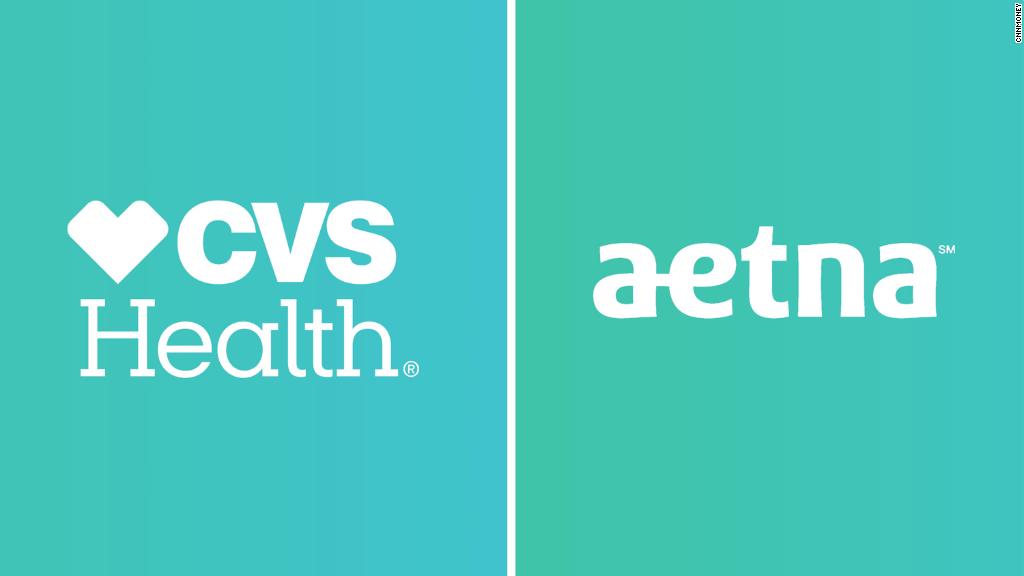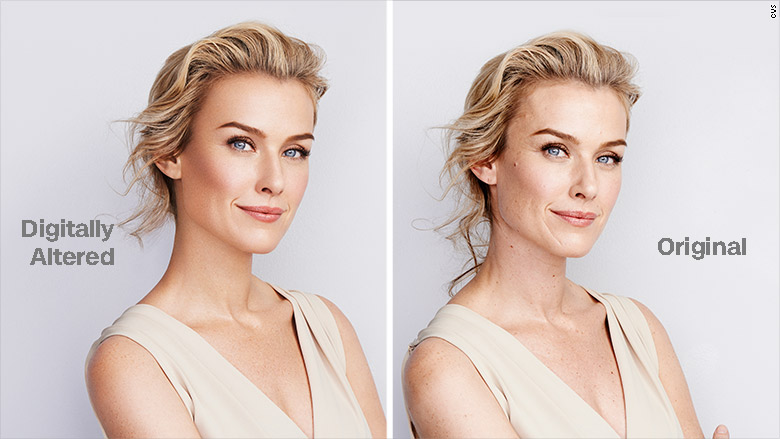
CVS wants women to be able browse for lipstick and moisturizer without worrying whether their lips are full enough or their forehead is smooth enough.
On Monday, the company said it would step away from using "materially" airbrushed photos to promote its beauty products in stores, online and in marketing materials.
"We will not digitally alter or change a person's shape, size, proportion, skin or eye color or enhance or alter lines, wrinkles or other individual characteristics," CVS said in a press release. "We want our beauty aisle to be a place where our customers can always come to feel good, while representing and celebrating the authenticity and diversity of the communities we serve."
To indicate a photo's authenticity, CVS will start putting a "CVS Beauty Mark" label on images that haven't been significantly retouched. The watermark will start appearing on beauty photos produced by CVS later this year.
The decision comes as a growing number of consumers expect the companies they patronize to reflect their own values. Last year, more and more corporations weighed in on issues like climate change and immigration. In 2014, CVS announced that it would become the first national pharmacy chain to stop selling tobacco products.
As the #MeToo movement heats up, women's issues are now in the forefront.
"The connection between the propagation of unrealistic body images and negative health effects, especially in girls and young women, has been established," Helena Foulkes, the president of CVS Pharmacy and executive vice president of CVS Health, said in a statement. "As a purpose-led company, we strive to do our best to assure all of the messages we are sending to our customers reflect our purpose of helping people on their path to better health."
In making the change, CVS is trying to stay ahead of the curve, Kantar Retail analyst Brian Owens said.
"They're being strategic about where their shoppers' values are aligned, and making sure they're keeping up with that," Owens said.
Deborah Weinswig, managing director at Fung Global Retail & Technology, said the move is about courting millennial buyers as their purchasing power grows.
"The beauty industry could witness its most significant transformation in the coming decade, largely influenced by millennials, who will be the demographic spending the most on beauty," Weinswig said.
CVS has nearly 9,700 locations across the U.S., and is one of the largest sellers of beauty products in the country.
Related: What the CVS-Aetna deal means for consumers

The drugstore is asking the other beauty brands that it sells, such as L'Oreal (LRLCF)and Johnson & Johnson (JNJ) to participate, too. The goal is to put transparent labeling on all beauty imagery in CVS aisles by the end of 2020, CVS said.
"We've reached out to many of our beauty brand partners, many of whom are already thinking about this important issue," Foulkes said.
Revlon, in a statement, said it supports CVS' work "to present positive and authentic images of women that reflect their individual characteristics and personal distinction."
CVS is in the process of acquiring health insurance giant Aetna (AET). If the deal is approved, CVS will become one of the nation's top health care providers.

